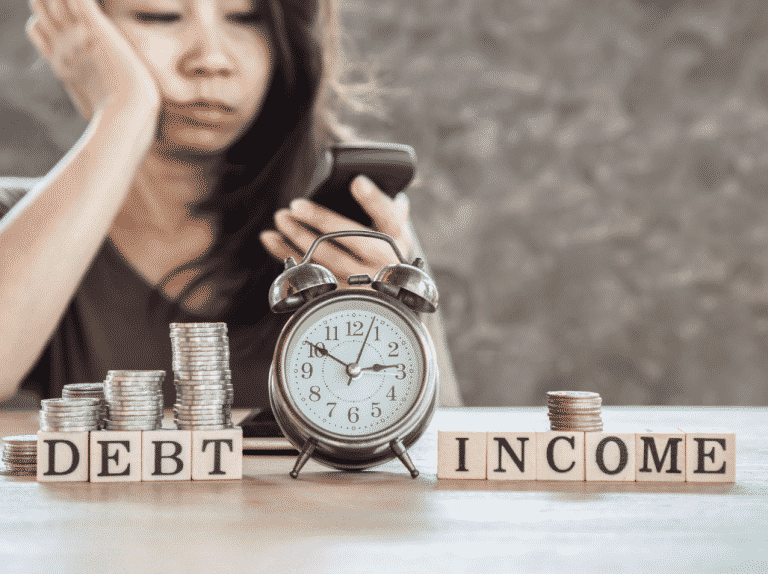Not everyone needs financial recovery
Let’s begin with the reality that not everyone is in dire need of financial recovery. If you are naturally blessed to be responsible with money and understand numbers and how the market and debt works – good for you!! That’s incredible. For the rest of us, it might as well be Greek. When I came into recovery, I barely knew how to hold a job much less balance a checkbook, pay off debt, or my taxes for that matter.
Clearly my recovery would not be complete without financial learning and solutions
See, I traveled the exciting financial road from privileged to pampered to spoiled to entitled to enabled to difficult to destructive to complete destruction. Some time in my 30s, I found myself sober but messy, fragile and in financial trouble. This put me on a path I never ever imagined I’d go on. I had always been loose with money but now the tricks I had for robbing Peter to pay Paul were far more dangerous than when I actually had the money, or credit to pay it back. Us addicts can do weird things with money so it’s crucial to understand if you have the money “ism’s”.
Financial Recovery: What are the money “ISM’S”?
Do you debt? Do you take out loans you can’t afford, use to many credit cards, use one card to pay off another, have mounting debt you can’t manage?
Do you overspend? Are you a compulsive shopper, can’t pass up a good deal, spend more than you have, have credit cards to every department store and on and on?
Do you underspend or live in depravation? This one is weird but I experienced it. Once I stopped compulsive shopping, I found it hard to buy anything. This can also translate to not going to doctors or taking care of yourself.
Do you hoard or clutter? If you can’t throw things away, have no clear space, or live in clutter, that is a qualification.
Financial Recovery: Money Is Spiritual
I didn’t know that when I walked into my firt meeting for financial recovery. For a long time I couldn’t even call myself a debtor. I come from a good family. I had some money of my own. So, wait? Why didn’t I have any? How did I spend everything I had? Why couldn’t I earn enough to make ends meet? Why couldn’t I pay my taxes? How had I gotten sober only to find myself in a financial crisis in my mid 30s with no way of knowing how to get out of it?
I had been waking up at 4 am in a panic, cold sweats and sometimes staying like that until 5 or 6 am for a year when I finally realized I had to do something about my financial troubles. The tax man, and advice of a sponsor in another 12-step program also pushed me into getting help, but it wasn’t an easy decision to make. The humiliation of it all. What a fall from grace, I thought.
What I learned was very different. I learned I’d had a very toxic relationship with money for as long as I could remember. I come from a good family who always provided everything I needed, which caused this weird feeling, something I can only liken to survivor’s guilt. I didn’t feel like I deserved it, but then without it, I felt like I was nothing. Where I lived, what I wore and what I could afford had defined me forever. Losing it was like losing my skin. I was cold and naked and felt totally ashamed. However, what it forced me to do was grow up in ways I didn’t even know I had to grow up and my life changed completely. Again, from the inside out.
Financial Recovery: I Rebuilt From Scratch
My debt wasn’t as horrible as some of the stories I heard. The IRS was my biggest problem. Like crack, which was something I never did, I was too scared to get into trouble with credit cards so my debt across four cards wasn’t a big deal compared to the sum I owed the IRS. So, I started going to financial programs and doing my numbers. After a few months months I wasn’t waking up at 4am anymore, though I still did feel like a loser. A few months after that I had completed enough to do something called a PRG – a pressure relief group where other members of the program look at your numbers and help you make a spending plan. Thats where the magic really starts to happen.
It’s now years later and I have found myself back in a position of financial sanity. But, that’s because I work really hard at my financial recovery. For me, fear lives wherever there isn’t clarity and balance. I was vague with my numbers. Things like taxes used to arrive and surprise me. This year, I was locked and loaded and filed on time. That didn’t used to happen.
20 years ago when I began acknowledging and addressing the fact that I had substance abuse problems, there was a lot of stigma about being an alcoholic/addict. While the stigma stills exists, it really doesn’t seem as bad. Most families have a member who’s dealing with some kind of addiction issue. Today, admitting to being a 12-step program for finances still feels odd. It’s not well-known so most people have no idea what I’m talking about. They hear the word debt and their eyes glaze over. The reason I want to write about the financial program is because often we’re told that AA, or rehab, or whatever treatment modality we’re using will spill over into other areas of our life. For me, that was not the case.
Financial Recovery: Learning How To Manage Money Is A Skill
Until someone showed me how to look at my numbers, I didn’t know what to do. Until someone mentored me on how to deal with the IRS, and credit cards, I just felt lost and scared. These can be complicated matters that require knowledge of the tax system, understanding of how debt and creditors work, and a basic working knowledge of math. I was lacking in these things. No amount of prayer or tenth steps was going to fix that.
Recovering addicts and alcoholics can sometimes seem fragile. “Why can’t he get his life together? He’s sober!” I’ve heard people say that. Well, for some recovering people the loss of years of schooling or professional training, or falling off a career path leaves real damage. That damage can be repaired, but for some of us, it does require learning a totally different set of skills.
Financial Recovery Is Learning New Skills
The skills, tools, friends and mentors that DA has given me has provided me with direction on how to find my way out of debt, how to ask for what I worth in working environments, and how to have a spending plan that is safe and effective.
To all my friends in recovery who can’t figure out why there never seems to be enough money, or who live in fear of the creditors who call all day long, I recommend you look into programs that support financial recovery. There’s no shame in realizing you need support in that area, and like all the other 12-step programs, if you work it, it works. Check Out Debtors Anonymous
More Articles To Read
Money Worries, Help Is On The Way
8 Tips To Overcome Recovery Resistance





















